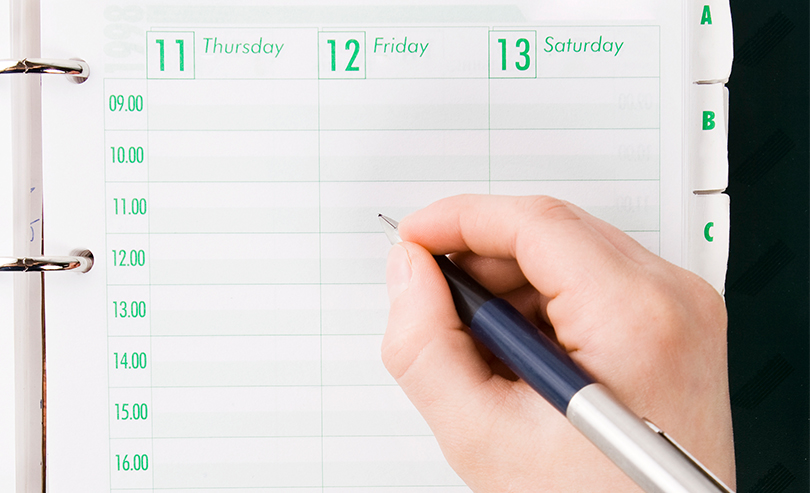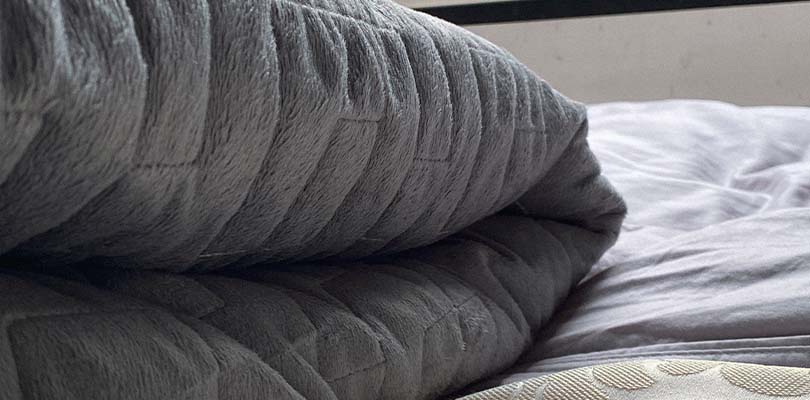Melatonin for Kids With ADHD
If your child has attention deficit hyperactivity disorder (ADHD), you may be looking for natural ways to improve their sleeping habits, and melatonin may be the answer.
Melatonin is a natural hormone that can be taken in supplement form, which has shown promise for improving sleep patterns in children who have ADHD.
You may want to consider heading to your local natural health food store and picking up a bottle of this supplement to see if it helps your child get a better night’s sleep.
What Is Melatonin?
Melatonin is a hormone that is naturally supplied by the body that helps to regulate the sleep-wake cycle. It is produced by the pineal gland, which is located on the back portion of the third ventricle of the brain.
When it comes to sleep regulation, melatonin is considered an endocrine hormone that helps to regulate the body’s internal clock, or “circadian rhythm.”
But contrary to popular belief, this inner system does not rely purely on melatonin but is run by the central nervous system. Melatonin’s roles are to tell the body when it’s time to sleep by making us drowsy, and it also helps to drop our body temperature.
An added benefit of melatonin is that it is an immensely powerful antioxidant with studies showing that it is more than 50 times more effective than vitamin C in protecting DNA from free radical damage.
Melatonin is derived from an amino acid and is found in certain food sources such as bananas, olive oil, and rice. However, to increase melatonin levels, supplements are necessary, as the melatonin found in food sources does not increase the concentration of the hormone in humans.
What Is ADHD in Children?
ADHD is a behavioral disorder that manifests its symptoms during childhood; however, these symptoms can continue into adulthood.
ADHD is the most commonly diagnosed mental health disorder in children and is more common in boys than girls. It is often diagnosed during the early school years when a child typically starts to show signs of attention difficulties.
It is normal for children to act up sometimes, but if your child is fidgety a bit too often, acts without thinking, has difficulty following instructions or has a hard time focusing at school and home, they may have ADHD.
Symptoms of ADHD in children are grouped into inattention, impulsivity, and hyperactivity symptoms.
Inattentive symptoms:
- Distracted easily
- Difficulty following directions
- Difficulty completing tasks
- Difficulty organizing tasks
- Forgets about daily routines/activities
- Doesn’t seem to be actively listening
- Doesn’t seem to be paying attention
- Makes careless mistakes
- Doesn’t like sitting still
- Looses things often
- Seems to be daydreaming constantly
Hyperactivity Symptoms:
- Squirms, bounces, or fidgets when sitting
- Difficulty playing quietly
- Always moving, doesn’t like to stay seated
- Constantly talking
Impulsivity Symptoms:
- Difficulty waiting their turn
- Often interrupts others
Treatment
While many believe that ADHD should be treated with medication, natural alternative remedies, as well as proper nutrition, exercise, sleep, and support can provide effective relief of symptoms in many cases.
Sleep Disturbances in Children With ADHD
Melatonin starts being produced as soon as the sun sets, and production drops in the morning when the sun rises. The amount of melatonin that is made by the body depends on two factors:
- The amount of light you get during the day
- Your personal body clock
Ideally, children produce the highest levels of melatonin by going to bed early and falling into a deep sleep. Unfortunately, children with ADHD are restless and often get little to no sleep, which interferes with the body’s production of melatonin. These sleep disturbances ultimately lower a child’s melatonin levels.
Attention is a good thing. If you can pay attention to yourself, other people and the world around you, you can stay invested and feel connected.
Approximately 6 percent of children without ADHD suffer from sleep problems. Compare this to the sleep statistics surrounding kids with ADHD:
- It is estimated that a fifth of children who have ADHD has some sort of sleep disturbance.
- Studies have shown that roughly a third of children undergoing treatment for ADHD have trouble sleeping.
- 54 percent to 64 percent of children with ADHD that are treated with methylphenidate experience insomnia symptoms due to the side effects of this medication.
Can Melatonin Help Kids With ADHD?
While melatonin, taken in supplement form, cannot improve overall ADHD symptoms, it can improve sleeping habits in children with ADHD. Melatonin is considered safe and effective for short-term use.
Although there is no evidence that melatonin helps with anything other than sleep, and it does not necessarily make a child sleep longer, it can help them fall asleep faster and improve their sleep quality through the night. Resolving insomnia, and its consequences can go a long way toward improving your child’s quality of life.
In order for a child to function optimally, they need 9 to 11 hours of quality sleep each night. There is strong evidence that has shown how beneficial and restorative sleep is, and how it is especially important for children during their developmental years.
Is Melatonin Safe?
While melatonin has fewer side effects compared to traditional sleeping aids, a child may still experience:
- Daily drowsiness
- Dizziness
- Head feeling heavier than usual
- Mild stomach discomfort
- Irritability
However, often these side effects only occur when melatonin is taken in combination with other medications that are not typically taken by children including: birth control pills, blood pressure medication, diabetic medication, etc.
In studies, doctors have administered 3-5 mg per day over short-term periods, and this is considered risk-free. However, no research has investigated the risks of long-term use of this supplement.
Sleep Hygiene Tips for Children With ADHD
While melatonin may aid in helping sleep patterns in children with ADHD, parents can also help their children by teaching them the importance and value of sleep. You can encourage healthy sleep hygiene behavior by:
- Relaxing routines. Relaxing routines may help children unwind more easily. Pick a calming activity to do before bed, like gentle stretching, soaking in a warm bath or listening to some calm music.
- Adhere to a sleep schedule. Send your child to bed at same time each night, regardless of how energetic they feel.
- Remove electronics from the bedroom. Limit screen time in the evening hours, and sleep in a cool, dark space. Consider using a humidifier or fan to generate a bit of white noise, which will drown out sounds that can wake you in the night.
Conclusion
Although it does not treat overall ADHD symptoms, melatonin can be of great help in reestablishing the balance in a child’s sleep cycle, which in turn may lead to improvement in their ADHD symptoms, as the consequences of insomnia will be erased.







